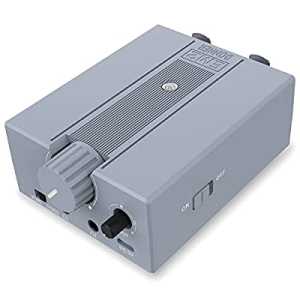
What Does A Glacoma Surgery Specialist Do? A Comprehensive Guide

Glaucoma is a group of eye conditions that damage the optic nerve, often due to high intraocular pressure (IOP). If left untreated, glaucoma can lead to permanent vision loss and even blindness. As one of the leading causes of blindness worldwide, early detection and treatment are crucial for preserving vision. For individuals diagnosed with glaucoma, a glaucoma surgery specialist plays an important role in managing the condition, particularly when non-surgical treatments like medications or laser therapy are insufficient.
In this comprehensive guide, we’ll explore what a glaucoma surgery specialist does, the types of surgeries they perform, and how they help patients manage and treat glaucoma.
What Is a Glaucoma Surgery Specialist?
A glaucoma surgery specialist is a medical professional with advanced training in diagnosing and treating glaucoma using surgical methods. These specialists are typically ophthalmologists—medical doctors who focus on the health of the eyes. However, unlike general ophthalmologists, a glaucoma surgery specialist has specific expertise in treating glaucoma through surgical interventions.
Glaucoma surgery specialists have completed years of specialized education, training, and hands-on experience in the field of glaucoma. They work closely with patients to monitor the progression of the disease, adjust medications, and, when necessary, recommend surgical treatments to prevent vision loss.
When Is Surgery Required for Glaucoma?
Surgery for glaucoma is typically recommended when other treatment methods, such as medications or laser procedures, fail to lower intraocular pressure (IOP) to a safe level. Glaucoma surgery aims to reduce IOP, either by improving the drainage of fluid in the eye or reducing the amount of fluid produced, thereby relieving pressure on the optic nerve.
Some common situations where surgery may be necessary include:
- Medications are not effective: If eye drops or oral medications do not lower IOP sufficiently, surgery may be considered.
- Intolerance to medications: Some patients may experience side effects or allergic reactions to glaucoma medications, making surgery a preferable option.
- Advanced glaucoma: In cases where glaucoma has progressed to a more advanced stage and there is significant risk of vision loss, surgery may be recommended to prevent further damage.
Types of Surgeries Performed by a Glaucoma Surgery Specialist
There are several types of surgical interventions that a glaucoma surgery specialist may perform, depending on the severity and type of glaucoma. These surgeries primarily focus on lowering IOP by improving the drainage of fluid or reducing its production in the eye. Some common surgical options include:
1. Trabeculectomy
One of the most common surgical procedures for glaucoma, a trabeculectomy involves creating a small opening in the sclera (the white part of the eye) to allow fluid (aqueous humor) to drain out, reducing intraocular pressure. This surgery helps to create a new drainage pathway for the fluid, bypassing the blocked drainage channels that are causing high IOP.
- Post-Operative Care: After a trabeculectomy, patients typically need to take anti-inflammatory medications and eye drops to prevent infection. Follow-up visits are essential to monitor the success of the surgery and check for any complications.
2. Glaucoma Drainage Implants (Shunt Surgery)
In some cases, a glaucoma drainage implant (also known as a shunt) is inserted into the eye to help with fluid drainage. This involves placing a small tube or implant in the eye to provide an alternative pathway for aqueous humor to exit the eye. It’s often used for patients who have not responded well to other treatments or surgeries.
- Types of Implants: There are several types of drainage implants, such as the Ahmed Valve and Baerveldt implant, which differ in design and size. Your glaucoma surgery specialist will decide which type is best for you based on your specific condition.
3. Minimally Invasive Glaucoma Surgery (MIGS)
MIGS procedures are a newer class of surgical options that aim to reduce IOP with less risk and a faster recovery time than traditional surgeries. MIGS involves making small incisions in the eye and using specialized instruments to improve the drainage system without removing significant tissue.
- Examples of MIGS: Some popular MIGS procedures include iStent, Hydrus Microstent, and Xen Gel Stent. These devices are inserted into the eye to enhance the natural drainage system and reduce IOP with minimal disruption to the eye.
MIGS is typically recommended for patients with mild to moderate glaucoma who may not need more invasive surgery.
4. Laser Surgery for Glaucoma
In some cases, laser surgery can be used as a standalone treatment or in conjunction with traditional surgery to lower IOP. There are different types of laser treatments used for glaucoma:
- Selective Laser Trabeculoplasty (SLT): This laser treatment targets the trabecular meshwork (the drainage structure in the eye), helping to improve fluid drainage. SLT is typically used for open-angle glaucoma.
- Laser Peripheral Iridotomy: This laser treatment is often used for angle-closure glaucoma. It involves creating a small hole in the peripheral iris (the colored part of the eye) to improve fluid drainage and reduce IOP.
- Cyclophotocoagulation: This laser procedure is used to reduce the amount of aqueous humor produced by the eye, particularly in cases of advanced glaucoma.
5. Cyclocryotherapy
This procedure involves using extreme cold to destroy the tissue that produces aqueous humor in the eye. It is used for advanced cases of glaucoma when other surgical options have failed.
Benefits of Glaucoma Surgery
Surgical intervention can have significant benefits for patients with glaucoma, including:
- Reduction in Intraocular Pressure: The primary benefit of surgery is the ability to lower IOP, thereby preventing further damage to the optic nerve and preserving vision.
- Improved Quality of Life: By controlling the progression of glaucoma, surgery helps patients maintain their independence and continue with daily activities like reading, driving, and working.
- Fewer Medications: For some patients, surgery can reduce the need for daily medications or eye drops, which can be costly and inconvenient.
Risks and Considerations of Glaucoma Surgery
While glaucoma surgery can be highly effective, it also carries potential risks and complications, including:
- Infection or Bleeding: As with any surgery, there is a risk of infection or bleeding, though this is rare.
- Vision Changes: In some cases, surgery may not fully restore vision, and patients may experience changes in their vision after the procedure.
- Increased Eye Pressure: While surgery aims to reduce IOP, there is a risk of the pressure rising again after surgery, which may require additional treatment.
- Cataract Formation: Some types of glaucoma surgery, particularly trabeculectomy, may increase the risk of cataracts developing in the future.
When to Consult a Glaucoma Surgery Specialist
If you have been diagnosed with glaucoma and your condition is not controlled with medication or laser therapy, a glaucoma surgery specialist can help. Early intervention is essential for preventing vision loss. Your ophthalmologist will evaluate your glaucoma and recommend the best course of treatment, which may involve referral to a specialized glaucoma surgeon if surgery is necessary. Managing glaucoma requires expert evaluation and precision-driven care.
A trusted glaucoma surgery specialist in Chinchwad offers both. From early diagnosis to advanced surgical procedures, these specialists help control intraocular pressure and preserve vision, especially when medication alone isn’t enough. Their focused approach ensures better outcomes for long-term eye health.
Conclusion
A glaucoma surgery specialist plays a crucial role in the management of glaucoma, particularly for patients who require surgical intervention to manage high intraocular pressure and prevent vision loss. By utilizing various surgical techniques like trabeculectomy, drainage implants, MIGS, and laser treatments, these specialists help to control the disease and improve the quality of life for individuals living with glaucoma.
If you or someone you know has been diagnosed with glaucoma and is concerned about the next steps in treatment, consider consulting with an experienced glaucoma surgery specialist. Early detection, proper management, and timely surgery can make a significant difference in preserving your vision.
Author Bio
Article Comments
No Comments!
At present there are zero comments on this article.
Why not be the first to make a comment?
Similar Articles
Search Pages
Upgrade User Account
account to full use of editor,
including hyperlinks
Article Categories
There are zero sub-categories in this parent category.
There are zero sub-categories in this parent category.











